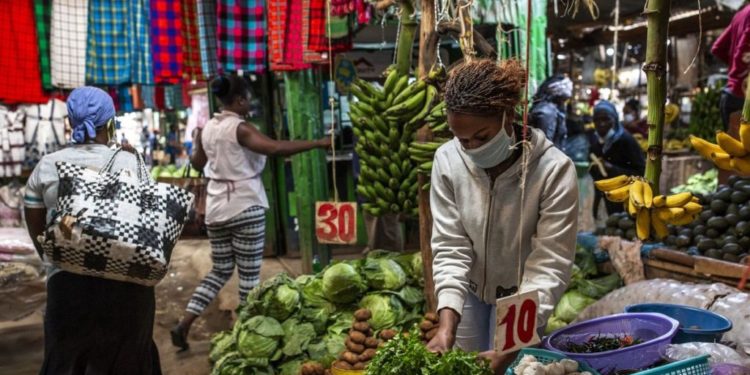Kenya’s economy is showing promising signs of recovery as inflation eased for the third consecutive month, according to the latest report by the Kenya National Bureau of Statistics (KNBS). According to the report, the overall year-on-year inflation as measured by the Consumer Price Index (CPI), eased by 0.6% points to 6.7% in August 2023, from 7.3% recorded in July 2023. This development brings relief to both consumers and businesses, marking a positive shift in the country’s economic landscape.
Read more: Kenya’s Inflation Eases to 7.3% in July 2023, Driven by Lower Food and Utility Costs
Inflation is a crucial economic indicator, often seen as a barometer of an economy’s overall health. A persistently high inflation rate can erode purchasing power, leading to reduced consumer spending and potentially hindering investment. On the flip side, a controlled inflation rate can stimulate economic activity.
Several factors have contributed to this decline in Kenya’s inflation rate. One of the most notable is the moderation of food and non-alcoholic beverages prices which accounts for a third of the inflation basket. Food inflation, which has been a primary driver of rising consumer prices, eased to 7.5% in August from 8.6% in July. This is partly due to favourable weather conditions that boosted agricultural production, resulting in increased food supplies.
In addition, inflation on housing, water, electricity and gas eased to 7.5% in August from 7.8% recorded in July. However, the reduction in the inflation rate was weighed down by the transport inflation, which rose to 13.1% in August, up from 13.0% in July, mainly due to the sustained high fuel prices at Kshs. 194.7.
Read more: The Central Bank of Kenya’s Governor, Optimistic About Inflation Easing and Economic Growth
Despite the August inflation rate falling below the Central Bank of Kenya’s (CBK) target range of 2.5% to 7.5%, inflationary pressures are expected to tighten due to the increased tax rates such as the 3% digital tax, which have come into effect as of 1st September. As such, it’s essential to remain vigilant and monitor factors, such as global commodity prices, with OPEC nations opting to reduce oil supply and currency exchange rates.
Email your news TIPS to editor@thesharpdaily.com
















